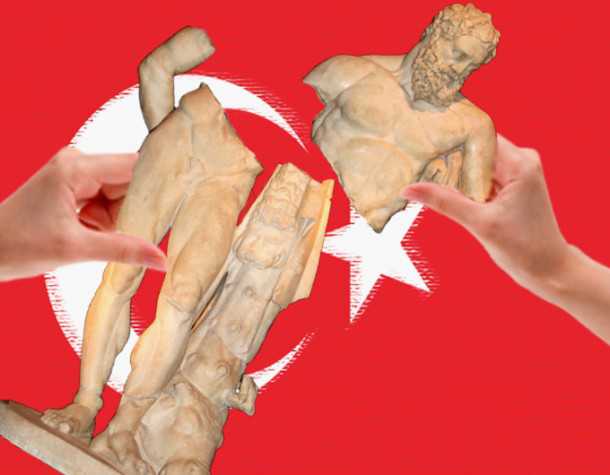Jonathan S. Tobin | @TobinCommentary 07.07.2011 – 4:42 PM
Turkey’s Islamic government has spent the last few years gradually dismantling that country’s once warm alliance with Israel. Motivated as much by their ideological affinities as any notion of their national interest, Prime Minister Recep Tayyip Erdoğan’s AKP party government had distanced itself from Jerusalem and then assumed the role of one of the Jewish state’s most ardent critics. Things came to a head last year when the Turks allowed an “aid” flotilla to Gaza to be launched from their shores to break the blockade of the Hamas-run strip. When Turkish nationals were killed as armed activists on one of the ships resisted Israeli commandos who bordered the vessel, it seemed a complete rupture between the two countries was in the cards.
Thus, the news that Israeli and Turkish diplomats are meeting today to settle their differences must be considered a remarkable turn of events. It shows that despite the sympathy for Israel’s Islamist foes among the Turks and the belief among some members of the AKP that their country should assume the pose of the successor of the Ottoman Empire, shoring up their strategic position in the region may be a higher priority.
The Arab Spring wave of protests has not only brought down Arab authoritarians such as Egypt’s Hosni Mubarak, it has also apparently scared the Turks who see the region now as roiling with unrest and instability. In particular, the chaos in Syria, a longtime antagonist of the Turks, is scaring Ankara. Israel knows it needs the Turks to act as counterbalance to the growing influence of Iran and its Hamas and Hezbollah allies, as well as to an increasingly hostile Egypt. By the same token, Turkey now realizes it needs Israel to act as a check on some of these same Islamic forces as much as they did in the past.
The sticking point between the two countries is agreeing on the final language of a United Nations report on the Marvi Mamara incident. Though chaired by a former prime minister of New Zealand, the committee has both Israeli and Turkish representatives. Both sides want the issue to go away. The key, as the New York Times noted today, is to find “a word that would sound like an apology in Turkish, but not in Hebrew.” The publication of the report is being held up to allow the two nations to arrive at a compromise. If, by giving a little on the wording, Turkey can be induced to back away from a confrontation, it will be a major triumph for Israeli diplomacy.
If this rapprochement happens, it will prove two common assumptions about the Middle East are totally wrong. One is that the Netanyahu government is ideologically too rigid and incompetent to conduct Israeli foreign policy. Given the skillful way he has held off pressure from the Obama administration while rekindling relations with Turkey, it appears the Likud-led coalition has a firm grasp on the nation’s interest. By the same token, Erdoğan’s apparent willingness to kiss and make up with Israel shows he is more worried about Turkey’s strategic needs than his ambition to be the leader of the Muslim world. If so, it shows that for all of the uncertainty about the Middle East and the rise of political Islam, the only two democracies in the region know they still need each other.
via Islam Takes a Backseat to Realpolitik in Turkey « Commentary Magazine.
